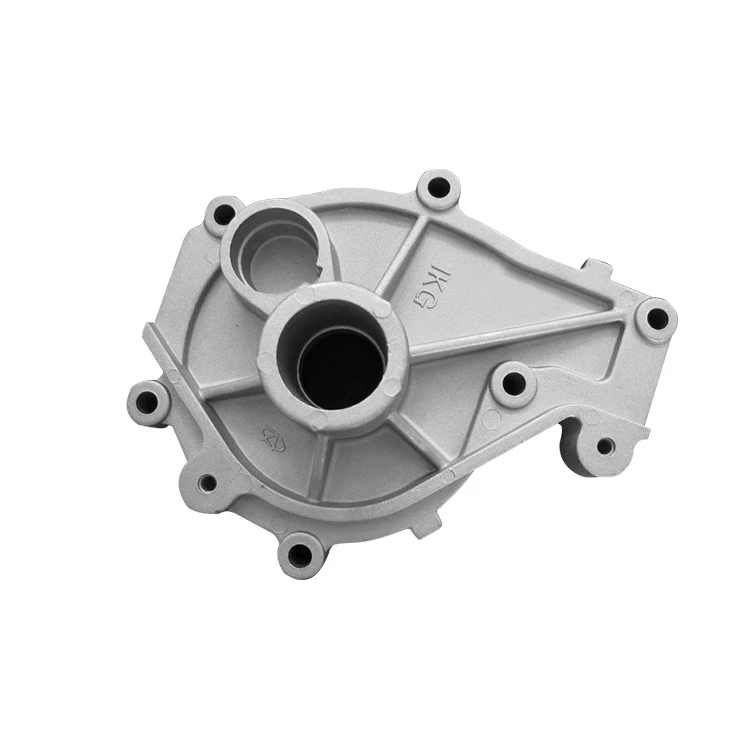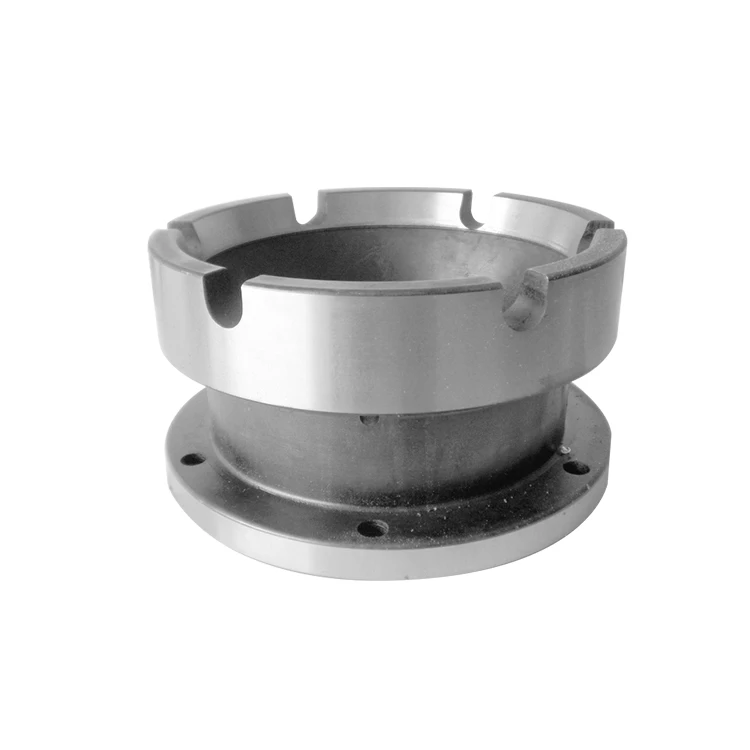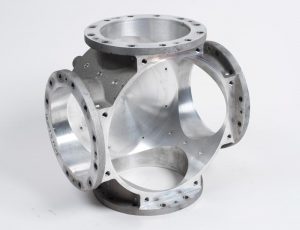Exploring the Innovative Processes Behind Modern Aluminum Shop Workflow
Modern light weight aluminum shop procedures are undergoing significant improvement. Automation and AI are improving production approaches, improving both performance and precision. The integration of 3D printing is enhancing mold and mildew development, while sustainability methods are coming to be much more vital. Each of these advancements plays a crucial duty in redefining the sector. Nonetheless, the ramifications of these modifications extend past plain production performance. What difficulties and opportunities exist in advance for light weight aluminum foundries in this developing landscape?
The Function of Automation in Aluminum Foundries

Automation adds to boosted safety standards within the factory environment. By transferring unsafe tasks to equipments, human workers can concentrate on supervisory duties and top quality control, decreasing the threat of mishaps. Additionally, information analytics acquired from automated procedures give beneficial insights right into operational efficiency, leading to much better decision-making and constant enhancement. As the need for light weight aluminum products expands, the adoption of automation modern technologies will likely expand, additionally transforming the landscape of light weight aluminum foundry operations.
Advancements in Spreading Technologies
Recent improvements in casting modern technologies are transforming aluminum factory procedures. Developments such as 3D printing integration, progressed alloy formulations, and automated process optimization are enhancing effectiveness and item top quality. These growths are essential in fulfilling the evolving demands of the sector.
3D Printing Integration
Integrating 3D printing innovation right into light weight aluminum foundry operations has revolutionized traditional casting methods, boosting both effectiveness and accuracy. This ingenious approach enables the fast manufacturing of intricate molds and cores, greatly decreasing lead times and product waste. By utilizing additive manufacturing, shops can develop complex geometries that were difficult or formerly challenging to attain with traditional methods. The versatility of 3D printing likewise enables quick layout adjustments, promoting a more agile production process. Additionally, this assimilation sustains the use of light-weight structures, which is increasingly essential in markets such as vehicle and aerospace. As light weight aluminum shops continue to embrace 3D printing, they place themselves at the leading edge of technical development, driving renovations in item quality and functional abilities.
Advanced Alloy Formulations
The advancement of advanced alloy formulations has substantially boosted spreading innovations in light weight aluminum foundry operations. These formulations integrate different elements, such as silicon, magnesium, and copper, to enhance mechanical buildings and thermal resistance. By customizing the structure of aluminum alloys, suppliers can accomplish certain performance qualities that meet the needs of varied applications, from automotive components to aerospace structures. The usage of innovative alloys additionally contributes to reduced weight and enhanced strength, which are essential aspects in modern-day design. Additionally, advancements in alloy development enable much better fluidity during spreading, resulting in improved surface area coatings and decreased problems. Overall, progressed alloy formulas represent a considerable leap ahead, positioning aluminum foundries to satisfy the developing demands of different markets efficiently.
Automated Process Optimization
Innovations in casting innovations have actually led the way for automatic procedure improvement in aluminum foundry operations. By incorporating sophisticated software and real-time data analytics, shops can currently improve production processes and improve quality assurance. Automated systems check variables such as pressure, cooling, and temperature level rates, enabling immediate adjustments that reduce flaws and waste. Additionally, machine learning algorithms evaluate historical performance information to forecast ideal settings, thereby raising efficiency and lowering cycle times. Robotics likewise play a substantial role, managing recurring tasks that boost security and precision. In general, these advancements not only drive functional effectiveness but likewise make it possible for shops to meet the growing demand for high-quality light weight aluminum parts in numerous industries.
Smart Production and Industry 4.0 Integration
The integration of Smart Manufacturing and Sector 4.0 within aluminum foundries is transforming operational efficiency. By leveraging IoT modern technologies, automation, and robotics, shops can optimize manufacturing processes and decrease downtime. In addition, information analytics offers essential insights that boost decision-making and drive continual enhancement.
IoT in Factory Operations
As makers increasingly accept the Net of Things (IoT), factory operations are experiencing a transformative change towards wise manufacturing and Market 4.0 integration. Aluminum Casting Company. IoT innovations enable real-time information collection and analysis, improving decision-making processes and operational effectiveness. Sensing units and connected tools check tools efficiency, product use, and environmental conditions, enabling proactive maintenance and resource optimization. This connection cultivates a much more nimble manufacturing setting, where adjustments can be made quickly in feedback to market needs. Furthermore, IoT facilitates enhanced traceability and quality assurance, as data from the entire manufacturing cycle can be quickly accessed and evaluated. On the whole, the integration of IoT in factory procedures considerably boosts performance and drives innovation in aluminum production processes
Automation and Robotics Assimilation
Automation and robotics combination is revolutionizing aluminum shop procedures by boosting effectiveness and accuracy. This transformative approach enhances procedures such as molding, pouring, and completing, reducing human mistake and raising output uniformity. By using innovative robot systems, foundries can accomplish greater production rates while preserving stringent quality requirements. Automated systems likewise make it possible for real-time tracking and adaptive control, permitting speedy adjustments to production criteria. Furthermore, the combination of robotics reduces labor expenses and mitigates security risks connected with hand-operated handling of molten metal. As factories accept wise manufacturing concepts integral in Market 4.0, the harmony in between automation and robotics strengthens their competitive edge, paving the way for lasting growth and innovation in the light weight aluminum spreading field.
Information Analytics for Performance
Harnessing data analytics substantially enhances efficiency within light weight aluminum shop procedures, straightening with smart production and Industry 4.0 concepts. By leveraging real-time data collection and analysis, foundries can keep an eye on production processes, forecast tools failings, and maximize resource allotment. This data-driven technique promotes informative decision-making, allowing managers to determine traffic jams and enhance process. In addition, anticipating analytics empowers foundries to anticipate market needs, consequently minimizing waste and making certain prompt item distribution. Combination of information analytics with IoT tools improves operational visibility, fostering a positive upkeep society. Ultimately, carrying out these sophisticated analytical strategies not just boosts performance but likewise drives technology, positioning light weight aluminum foundries to fulfill the advancing check this site out demands of the industry while keeping affordable sides in a quickly altering landscape.
Sustainable Practices in Aluminum Casting
While the light weight aluminum casting market has actually commonly encountered ecological challenges, many foundries are now adopting sustainable techniques to mitigate their influence (Aluminum Foundry). A significant focus has been on reusing light weight aluminum scrap, which not only lowers waste but additionally saves energy contrasted to primary light weight aluminum manufacturing. Cutting-edge melting modern technologies, such as induction furnaces, enhance energy effectiveness and lower greenhouse gas exhausts
Additionally, factories are executing closed-loop water supply to lessen water consumption and lower thermal pollution. Using green binders in mold-making procedures is obtaining traction, additional lowering damaging discharges.
Additionally, some centers are investing in sustainable power sources to power procedures, lining up with worldwide sustainability objectives. By incorporating these techniques, the aluminum casting sector is developing towards a more environmentally responsible future, demonstrating that financial growth can exist side-by-side with environmental stewardship - Aluminum Foundry. These efforts reflect a dedication to sustainability and the significance of ecological accountability in manufacturing
Quality Assurance Innovations
As the light weight aluminum casting market breakthroughs towards sustainability, the value of quality assurance innovations ends up being increasingly apparent. Modern light weight aluminum shops are adopting sophisticated technologies to boost their high quality guarantee processes. Methods such as real-time monitoring and data analytics enable suppliers to find inconsistencies and defects early in the manufacturing cycle. Carrying out computerized inspection systems geared up with equipment finding out formulas warranties that products satisfy rigid quality requirements while minimizing human error.
The assimilation of non-destructive testing methods, such as ultrasonic and radiographic evaluations, provides much deeper insights into the honesty of spreadings without harming the material. These developments not only boost item reliability but likewise reduce waste, lining up with sustainability goals. On top of that, the fostering of standard high quality frameworks helps enhance procedures throughout different shops, assuring consistency in outcome. Jointly, these innovations are improving high quality control, promoting a society of quality within the light weight aluminum casting market.
Future Patterns in Light Weight Aluminum Foundry Operations
What innovations lie ahead for aluminum foundry procedures? The future of light weight aluminum factories is poised for change with innovations in automation, artificial intelligence, and lasting methods. The combination of robotics and automated systems is expected to enhance efficiency and accuracy in the casting procedures, decreasing human mistake and labor costs. In addition, AI-driven analytics will certainly make it possible for real-time monitoring and anticipating maintenance, maximizing operational efficiency and minimizing downtime.
Sustainability remains a prime focus, with foundries progressively taking on environment-friendly methods, such as using recycled aluminum and developing low-emission melting technologies. Developments in 3D printing are additionally prepared for to transform my explanation mold-making, permitting complex geometries and lowered material waste. As the market accepts digitalization, data-driven decision-making will end up being critical, making it possible for foundries to react swiftly to market demands. Jointly, these fads assure to redefine light weight aluminum foundry operations, making them extra effective, sustainable, and versatile to future difficulties.

Frequently Asked Concerns
What Safety And Security Actions Are Carried Out in Aluminum Factory Operations?
Light weight aluminum shop operations execute different safety procedures, consisting of personal protective devices, air flow systems to handle fumes, normal safety training, emergency action plans, and rigid monitoring of temperature and equipment to avoid mishaps and warranty employee safety and security.
Exactly How Do Foundries Manage Labor Force Educating for New Technologies?

What Materials Are Frequently Reused in Light Weight Aluminum Foundries?
Light weight aluminum factories typically reuse scrap light weight aluminum, consisting of post-consumer products like drink canisters, auto components, and construction products. This recycling procedure lowers waste and preserves sources, adding to a more sustainable light weight aluminum manufacturing industry.
How Does Light Weight Aluminum Spreading Impact the Atmosphere?
Light weight aluminum casting effects the environment with energy-intensive processes, greenhouse gas emissions, and possible regional pollution. Innovations in recycling and sustainable practices can minimize these results, advertising an extra environment-friendly strategy to aluminum manufacturing.
What Are the Typical Lead Times for Aluminum Casting Projects?
Normal lead times for light weight aluminum spreading projects differ significantly, generally varying from two to 6 weeks. Elements affecting these timelines consist of complexity, order size, and material accessibility, affecting total manufacturing routines in factory procedures.
Automation significantly plays an essential duty in aluminum factories, enhancing efficiency and accuracy in the production procedure. Advancements in casting technologies look at this website have led the method for automatic process enhancement in aluminum factory procedures. Harnessing information analytics significantly enhances performance within aluminum factory procedures, straightening with wise production and Sector 4.0 principles. A substantial emphasis has been on recycling aluminum scrap, which not only decreases waste however also preserves power compared to primary light weight aluminum production. Light weight aluminum shops frequently recycle scrap light weight aluminum, consisting of post-consumer products like beverage canisters, auto components, and building and construction products.